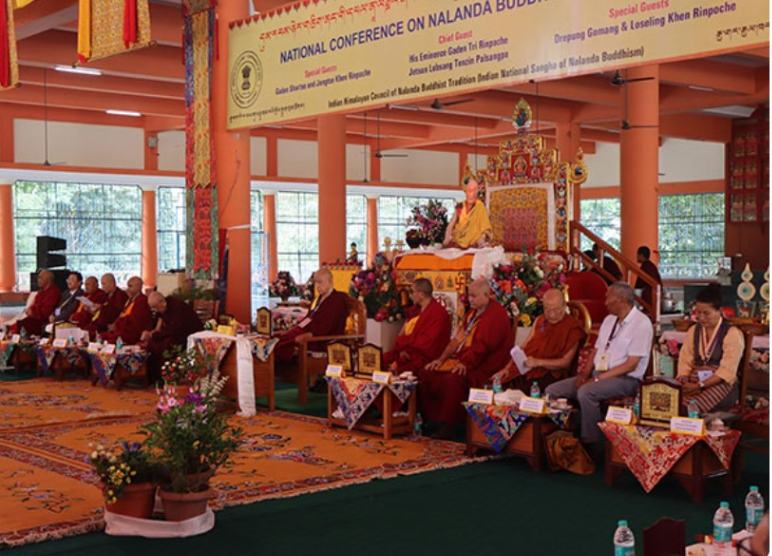National Conference reveals Nalanda Buddhism's role in global challenges
Held at the Gaden/Drepung Monastery here, the conference brought together leading Buddhist scholars, spiritual leaders, and monastic practitioners from across the Himalayan region and beyond. Read further on Dynamite News:

Karnataka: The Indian Himalayan Council of Nalanda Buddhist Tradition (IHCNBT) organized a National Conference on Nalanda Buddhism in the 21st Century - Re-tracing the Source in the Footsteps of Acharyas: From Nalanda to the Himalayas on Monday.
Held at the Gaden/Drepung Monastery here, the conference brought together leading Buddhist scholars, spiritual leaders, and monastic practitioners from across the Himalayan region and beyond.
Gaden Tripa Rinpoche delivered the keynote address
Gaden Tripa Rinpoche, Jetsun Lobsang Tenzin Palsangpo, delivered the keynote address as the Chief Guest, emphasising the importance of Nalanda Buddhism as a source of wisdom in the modern world.
He highlighted the contributions of great Nalanda masters such as Acharya Shantarakshita, Nagarjuna, and Guru Padmasambhava, and reflected on how their teachings of compassion, reason, and mindfulness could offer solace amidst global conflicts like the ongoing Russia-Ukraine war and the Israel-Gaza conflict.
Also Read |
US welcomes construction of Kartarpur corridor
The conference featured prominent Buddhist masters and scholars, including abbots from Gaden Shartse, Gaden Jangtse, Drepung Gomang, and Drepung Loseling Monasteries.
Venerable Jangchup Choeden Rinpoche, Secretary General of the International Buddhist Confederation (IBC), delivered the keynote address, focusing on Nalanda Buddhism's core teachings of logic, compassion, Vipassana meditation, the Four Noble Truths, and the Eightfold Path.
The conference sessions covered various themes
The conference sessions covered various themes, including the history and development of Nalanda Buddhism, its philosophical underpinnings, and its role in the modern world.
Scholars discussed how the Nalanda tradition, which rejects the concept of a creator god, aligns with modern scientific thought and contributes to a deeper understanding of the mind and consciousness.
The philosophical evolution from the Nalanda period to present-day practices in the Himalayan monastic institutions was also examined.
The event also served as a platform to acknowledge the vital role that monasteries in Mundgod--such as Gaden, Drepung, and Sera--play in preserving the Nalanda tradition.
Also Read |
Pope urges Thais not to see Christianity as 'foreign'
Tibet loss in 1959
After Tibet's loss in 1959, these monasteries became the centres for monastic education for thousands of monks and nuns from the Indian Himalayan region. Today, they remain the heart of Nalanda Buddhism in exile.
A key objective of the conference was to encourage debate, research presentations, and cultural exchange on the impact of Nalanda Buddhism across Himalayan states, including Arunachal Pradesh, North Bengal, Sikkim, Ladakh, Himachal Pradesh, and Uttarakhand. (with Agency inputs)
 Dynamite News
Dynamite News 